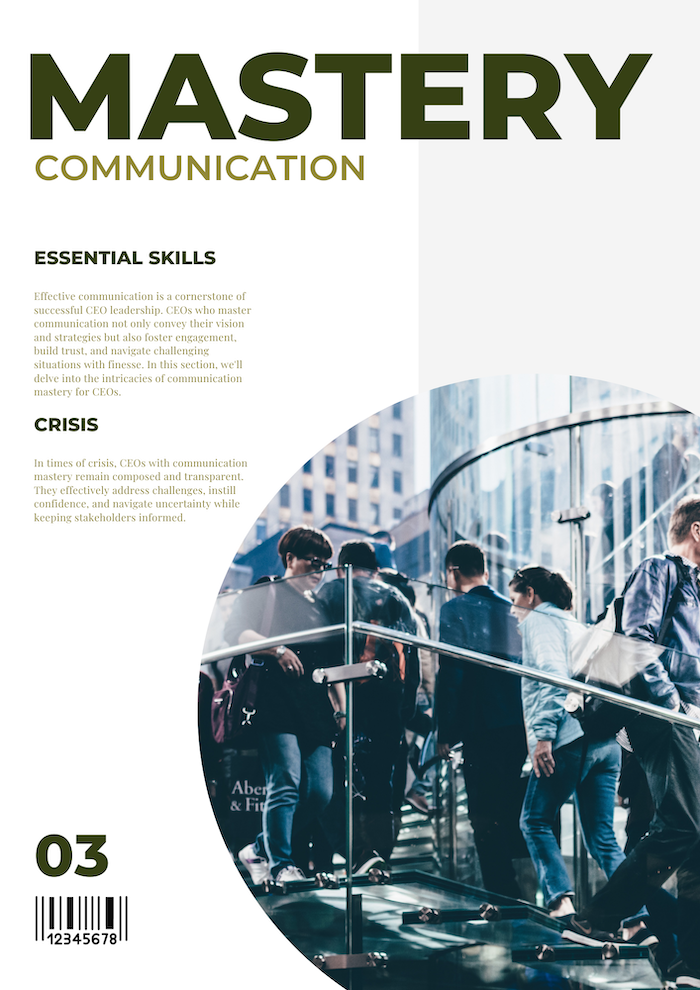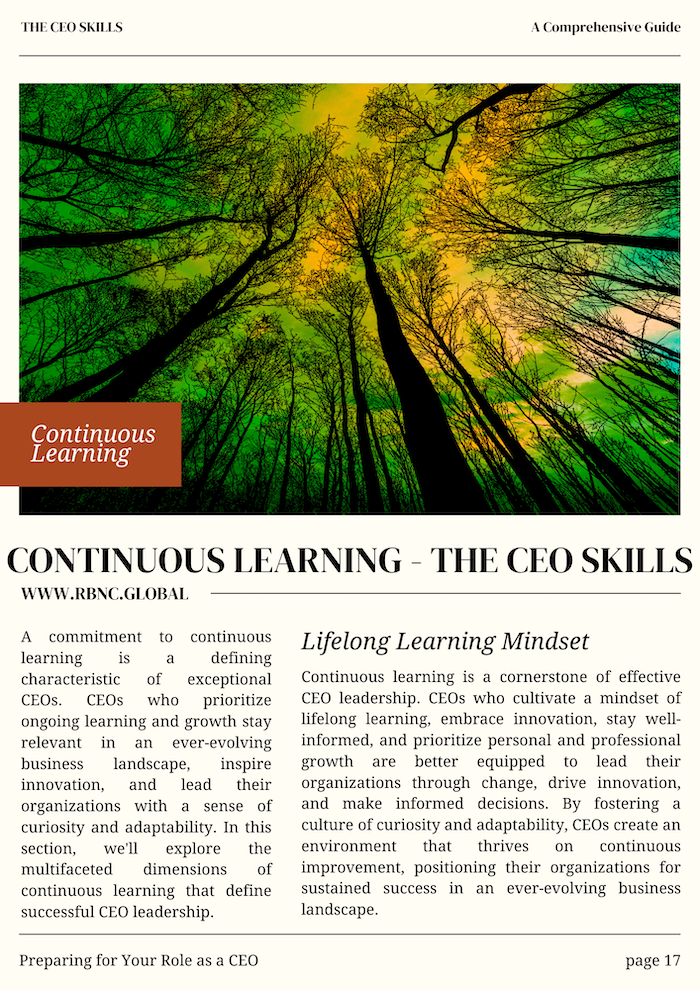Communication Mastery - The CEO Skills
Effective communication is a cornerstone of successful CEO leadership. CEOs who master communication not only convey their vision and strategies but also foster engagement, build trust, and navigate challenging situations with finesse. In this section, we'll delve into the intricacies of communication mastery for CEOs.
Clear Communication:
Exceptional CEOs are skilled at conveying complex ideas with clarity and simplicity. They ensure that their messages are easy to understand, resonating with diverse audiences across the organization and beyond.
- Message Tailoring: CEOs adept in communication tailor their messages based on the audience's level of familiarity with the subject. They avoid jargon and technical terms that might hinder understanding.
- Consistent Messaging: These CEOs maintain consistency in their communication. Their messages align with the company's vision and values, reinforcing a coherent narrative.
Active Listening:
Successful CEOs recognize that effective communication is a two-way street. They actively listen to their teams, stakeholders, and customers, valuing their input and feedback.
- Empathy: CEOs who practice active listening demonstrate empathy and a genuine interest in others' perspectives. This fosters trust and mutual respect within the organization.
- Employee Engagement: These CEOs use active listening to identify employee concerns, needs, and aspirations, creating a culture where employees feel valued and heard.
Crisis Communication:
In times of crisis, CEOs with communication mastery remain composed and transparent. They effectively address challenges, instill confidence, and navigate uncertainty while keeping stakeholders informed.
- Transparency: CEOs demonstrate transparency by openly acknowledging challenges and sharing information about the steps being taken to address them. This builds trust during difficult situations.
- Timeliness: These CEOs communicate promptly during crises, ensuring that stakeholders receive accurate information before speculation takes hold.
Nonverbal Communication:
Masterful CEOs understand that nonverbal cues speak as loudly as words. They use body language, facial expressions, and gestures to reinforce their verbal messages.
- Confidence: CEOs exhibit confidence through their posture, eye contact, and demeanour. Their nonverbal cues reflect their conviction in their messages.
- Empathy and Approachability: Exceptional CEOs convey empathy and approachability through nonverbal cues. They make themselves available for conversations, welcoming open dialogue.
Adaptive Communication:
CEOs who excel in communication master the art of adapting their style to suit different situations and audiences. They recognize that effective communication requires tailoring their approach.
- Board Presentations: CEOs adapt their communication style when presenting to the board of directors. They focus on key metrics, strategic insights, and financial data to align with the board's perspective.
- Employee Engagement: These CEOs adjust their communication style to engage and inspire employees. They use relatable anecdotes, storytelling, and motivational language to connect with their teams.
Conclusion:
Communication mastery is more than just eloquence; it's about conveying messages that resonate, engage, and inspire action. CEOs who excel in communication ensure their messages are clear, listen actively to diverse voices, navigate crises transparently, and adapt their style to diverse audiences. By honing these skills, CEOs can build trust, foster collaboration, and steer their organizations through both challenges and triumphs with clarity and grace.
Back to: Chapter 2: Essential Skills and Qualities of a CEO









